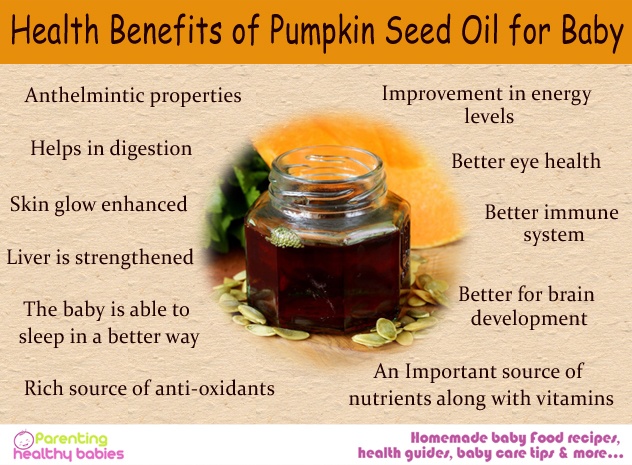Some of the health benefits of mushrooms for babies include supply of vitamin D, good source of iron, supply of antioxidants, strengthens the immune system and liver protection.
For many hundreds of years mushrooms have been considered to be delightful and juicy food in most parts of the world. The peculiar flavor and the fine taste of mushrooms have captivated many people, especially the aristocrats in the Roman Empire. Still today, many people love mushrooms for their tender flavor.
Most people think mushrooms are one kind of vegetable or fruit, but in reality, mushrooms are actually fungus. These fungal species grow into mushrooms in moist, damp conditions, mostly away from direct sunlight.

Most of us buy mushrooms from general stores. These are farmed mushrooms which are white in color and they belong to the species Agaricus bisporus. Apart from this species there are numerous edible mushrooms in the wild. But, one of the trickiest parts of mushrooms is that all of them look very much alike and it is very difficult to spot edible ones from non-edible or poisonous ones. Only a qualified mycologist can determine whether a mushroom can be eaten or not. It is better to avoid mushrooms that you find in the wild because without lack of knowledge and experience, there is high risk of picking up poisonous mushrooms. Contrary to popular belief no home tests can determine whether certain types of mushrooms are safe or not.
Are mushrooms safe enough to be given to my baby?
Well, this question is on most parents’ minds when they contemplate about introducing mushrooms into their baby’s diet. In most cases, edible mushrooms like ‘Natures Rise’ sold in general stores are safe due to strict FDA guidelines. Only the very safest mushrooms are sold to general public. Ideally, mushrooms are not the right food that comes to the mind of most parents to be introduced into their baby’s diet. But, nevertheless, you can introduce mushrooms, once your baby is between 10-12 months of age.
Nutrition in white mushrooms
According to the National Nutrient Database, United States Department of Agriculture the nutrients found in mushroom include
| Nutrition | Value per 100 g | Nutrition | Value per 100 g |
| Water | 92.45 g | Energy | 22 kcal |
| Protein | 3.09 g | Total Lipid (Fat) | 0.34 g |
| Carbohydrates | 3.26 g | Fiber | 1 g |
| Sugars | 1.98 g | Calcium | 3 mg |
| Iron | 0.5 mg | Magnesium | 9 mg |
| Phosphorous | 86 mg | Potassium | 318 mg |
| Sodium | 5 mg | Zinc | 0.52 mg |
| Vitamin C | 2.1 mg | Thiamin | 0.081 mg |
| Riboflavin | 0.402 mg | Niacin | 3.607 mg |
| Vitamin B-6 | 0.104 mg | Folate | 17 ug |
| Vitamin B-12 | 0.04 ug | Vitamin E | 0.01 mg |
| Vitamin D | 7 IU |
Health benefits of mushrooms for babies/ toddlers
Here are some of the health benefits of mushrooms for babies/ toddlers.
A good source of vitamin D: Vitamin D is the ‘sunshine vitamin’ which means that our body can make vitamin D when exposed to sunlight. But in most cases, babies are not exposed to sunlight and lack in vitamin D. Mushrooms can come very much in handy. Mushrooms contain moderate amounts of vitamin D.
Good source of iron: Mushrooms are also a good source of iron. Iron is very important in forming new blood cells. Blood cells contain hemoglobin in which iron has a major role to play. Supply of iron is crucial for optimum development of your baby because the iron in the hemoglobin bonds with oxygen and supplies oxygen to the whole body.
Immunomodulatory properties: Several studies have shown that mushrooms contain certain biochemicals that possess immunomodulatory properties or which strengthen the immune system. Stimulation and strengthening of the immune system decreases the chances of infections and keeps your baby healthy. (Lindequist, et al, 2005).
Antioxidant properties: Mushrooms also contain several biochemicals with antioxidant properties. As we have mentioned in earlier articles, antioxidants are required to reduce oxidative stress caused by free radicals, produced during metabolism. (Lindequist, et al, 2005).
Liver protection: Apart from the above mentioned benefits, mushrooms are also useful in protecting liver from damage. Infant liver can be damaged due to diseases such as jaundice and hepatitis. Liver damage can be countered with mushrooms. Research into mushrooms has revealed that the biochemicals reduce the free radical scavenging in liver and are also helpful in controlling severe hepatitis B. (Lindequist, et al, 2005).
Measures to be taken while buying mushrooms
Buy only from trusted sellers: While packaged mushrooms that are available in general stores from reputed sellers are safe to consume, it is advised not to buy mushrooms from unknown sellers, which are unlabelled. They might be poisonous.
Do not trust anyone but a qualified mycologist: A mycologist is the only one who is qualified enough to identify which mushrooms are edible and which are not. If happen to know one, trust only his word.
Cooking is important: Mushrooms must always be cooked before they are eaten. Uncooked or raw mushrooms can cause poisoning. The symptoms include nausea, vomiting, itching, hives, swelling of lips, throat, tongue; convulsions, cramps, etc. and in some cases, it can be lethal. This is due to the presence of a biochemical named mycochitin. It is difficult to digest raw, but cooking breaks down this chemical and makes it harmless. Apart from this, raw mushrooms can also contain certain carcinogenic chemicals that can cause tumors. They are also broken down when properly cooked. (Mushroom Toxins; Toth, 1979).












